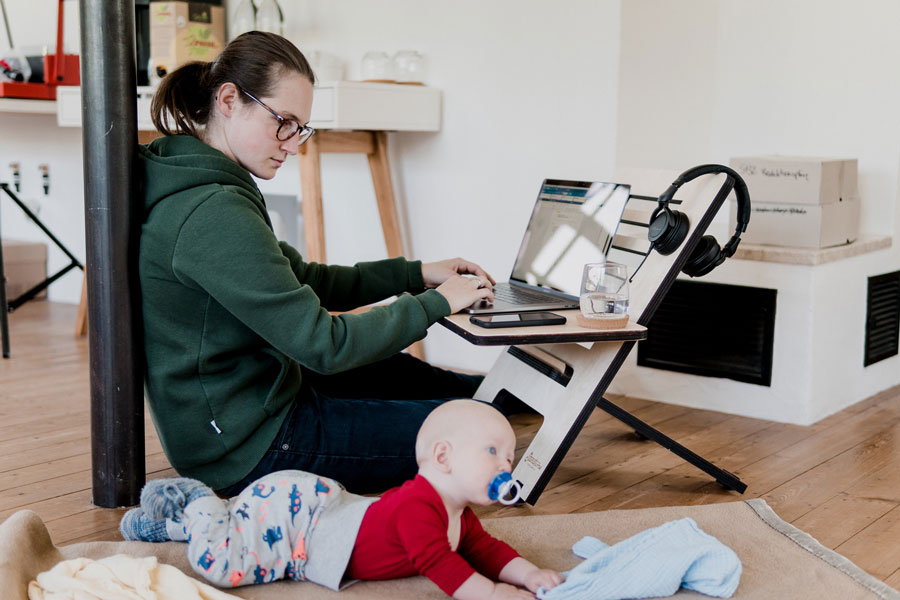
Coding and creativity: why Monet, Davinci and Lowry would have made great developers
November 26, 2020
How to manage your mental health when working from home
November 26, 2020Here at Aquarium, we’ve conducted our fair share of job interviews – and like to think we know a thing or two about what makes a good candidate.
Though we’re sure you’ve read blog posts about job interview tips before, we find that interviewees are still falling at the same hurdles.
To help you out, we thought we’d share our own pointers that will hopefully help applicants stand out from the crowd.
Looking to boost your chances of landing the job? Then read on and find out the interview advice that we think candidates all too often ignore.
#1 Anticipate questions and prepare
While we’re all familiar with standard job interview questions, you’d be surprised how many people fail to prepare answers for even the most basic of queries.
Common interview questions include:
- Tell me about yourself
- Why do you want this job?
- What are your greatest strengths AND weaknesses?
- Where do you see yourself in the future?
- Can you tell me a challenge that you overcame?
Now, we’ve all seen these before, so why is it that so many of us aren’t ready to answer them? Sure, job interviews might be becoming a little more creative, but you can still expect to be faced with some (if not all) of these classic questions.
Our advice is to spend some time planning answers to some of the most common interview questions. You don’t need to write whole essays, but just mentally note key points for each. This will limit the number of awkward silences (or worse, filler words like ‘um’ and ‘er’) and allow you to respond confidently.
#2 Don’t underestimate small talk
In the same way that you should be preparing answers to common questions, you should also take some time to consider small talk.
Although you may not think it, small talk is part of the interview process and where the employer will begin to determine whether you’d be a good personality fit for the business.
From your perspective, you should treat this as a warm-up and an opportunity to settle into the situation.
So what’s the trick with small talk?
Well, what you really want to do is build a rapport with the interviewer. With this in mind try and avoid cliche chat about traffic or the weather. Instead, try to ask questions, comment on the company, or find some common ground. This is where some company and interviewer research will come in handy!
Failing all that, just smile and be polite. You won’t land a job at this stage, but you can certainly lose it!
#3 Body language says a lot
Job interviews are all about first impressions. The thing is, you probably don’t realise you’re giving out signals before you’ve even opened your mouth.
While doing your company research and preparing answers, it can be easy to forget the importance of body language.
It’s often said that communication is 55% body language – which includes everything from facial expressions to posture.
We like to see candidates that carry themselves confidently, keep eye contact when answering questions and never forget to smile.
But what about the rise of remote video interviewing? How does this affect the importance of body language?
Well, while it’s arguably more difficult to read body language in a remote scenario, the same rules still apply. Just remember to sit up straight (definitely no slouching!), be open and look engaged.
#4 Be curious and ask questions
Interviewers love an applicant who appears passionate and engaged – and there’s no better way to make this impression than by asking insightful questions.
In the same way that you should prepare some job interview answers, you should also have a few questions up your sleeve.
But what questions should you ask?
When we’re interviewing, we like to hear questions that show a candidate has done their research, understands our company and is genuinely interested in the role.
Some of our favourites include:
- I’ve read about the company’s background (e.g. how they were founded), but could you tell me a little more?
- Can you show me some examples of projects I’d be working on?
- What can you tell me about the team I’d be working with?
- What is the company culture like?
- Is there anything that we’ve discussed that makes you think I might not be a good fit for the role?
The key is to be inquisitive. We want employees who really want to work for us and there’s no better way of gauging that than by the questions they ask.
#5 A thank you goes a long way
First impressions certainly count in a job interview situation, but there’s also a lot to be said for last impressions.
After finishing an interview, sending a thank you follow up can put you firmly in the good books of the employer; after all, politeness goes a long way.
Now, we hasten to add that this definitely won’t secure you the job (at least, not on its own), but it might give you a small advantage over those that didn’t – especially if there’s not much between the candidates.
Even if you don’t get the job, ending things on a positive note will make the employer more likely to remember you in future, if a similar position becomes available.
To end
So there we have it, our rundown of the job interview advice you certainly shouldn’t ignore!
If you’re interested in working for us (and potentially interviewing with us), then visit our careers page to see our latest vacancies.





